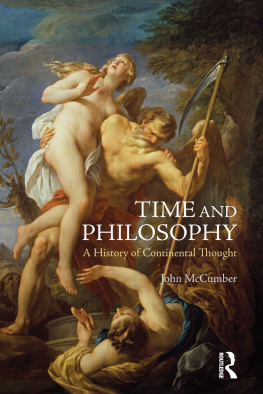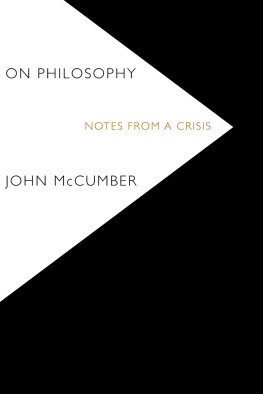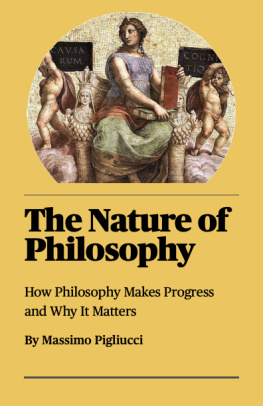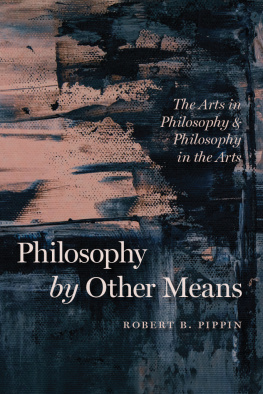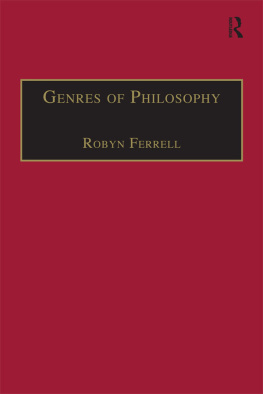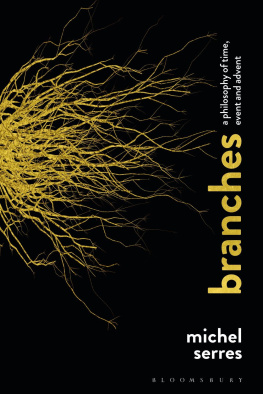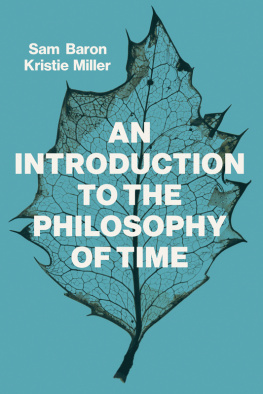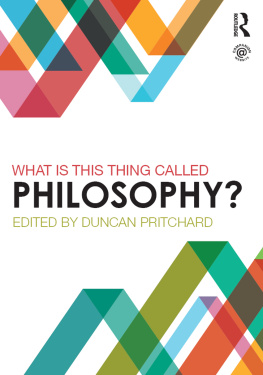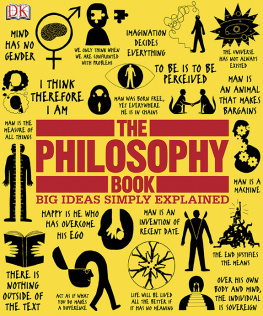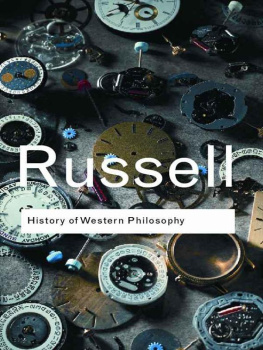McCumber - Time and Philosophy
Here you can read online McCumber - Time and Philosophy full text of the book (entire story) in english for free. Download pdf and epub, get meaning, cover and reviews about this ebook. publisher: Taylor & Francis (CAM), genre: Religion. Description of the work, (preface) as well as reviews are available. Best literature library LitArk.com created for fans of good reading and offers a wide selection of genres:
Romance novel
Science fiction
Adventure
Detective
Science
History
Home and family
Prose
Art
Politics
Computer
Non-fiction
Religion
Business
Children
Humor
Choose a favorite category and find really read worthwhile books. Enjoy immersion in the world of imagination, feel the emotions of the characters or learn something new for yourself, make an fascinating discovery.
Time and Philosophy: summary, description and annotation
We offer to read an annotation, description, summary or preface (depends on what the author of the book "Time and Philosophy" wrote himself). If you haven't found the necessary information about the book — write in the comments, we will try to find it.
Time and Philosophy — read online for free the complete book (whole text) full work
Below is the text of the book, divided by pages. System saving the place of the last page read, allows you to conveniently read the book "Time and Philosophy" online for free, without having to search again every time where you left off. Put a bookmark, and you can go to the page where you finished reading at any time.
Font size:
Interval:
Bookmark:

TIME AND PHILOSOPHY
TIME AND PHILOSOPHY
A History of Continental Thought
John McCumber

First published 2011 by Acumen
Published 2014 by Routledge
2 Park Square, Milton Park, Abingdon, Oxon OX14 4RN
711 Third Avenue, New York, NY 10017, USA
Routledge is an imprint of the Taylor & Francis Group, an informa business
John McCumber, 2011
This book is copyright under the Berne Convention.
No reproduction without permission.
All rights reserved. No part of this book may be reprinted or reproduced or utilised in any form or by any electronic, mechanical, or other means, now known or hereafter invented, including photocopying and recording, or in any information storage or retrieval system, without permission in writing from the publishers.
Notices
Practitioners and researchers must always rely on their own experience and knowledge in evaluating and using any information, methods, compounds, or experiments described herein. In using such information or methods they should be mindful of their own safety and the safety of others, including parties for whom they have a professional responsibility.
To the fullest extent of the law, neither the Publisher nor the authors, contributors, or editors, assume any liability for any injury and/or damage to persons or property as a matter of products liability, negligence or otherwise, or from any use or operation of any methods, products, instructions, or ideas contained in the material herein.
ISBN: 978-1-84465-275-4 (hardcover)
ISBN: 978-1-84465-276-1 (paperback)
British Library Cataloguing-in-Publication Data
A catalogue record for this book is available from the British Library.
Typeset in Minion Pro.
CONTENTS
Charlton Payne compiled the suggestions for further reading. I am indebted to my department chairs, Hans Wagener and James Schultz, and to my Dean, Timothy Stowell, for arranging my teaching as to both time and topic so that it could contribute to this volume. Brenda Wirkus and Dianna Taylor afforded me the privilege of a term at John Carroll University, during which this project had its genesis. Tristan Palmer performed near-miraculous feats as my editor, rounding up four excellent readers from whose reports I learned much.
Jeffrey Rice and my colleagues in the UCLA German Department have provided ongoing inspiration and encouragement, as has Franoise Lionnet. My greatest debt is to my students at John Carroll University, Northwestern University and UCLA. They have taught me far more than I have taught them, and I aspire to be their worthy disciple.
AA | Kant, Akademie Ausgabe |
BE | Badiou, Being and Event |
BT | Heidegger, Being and Time |
BW | Sartre, Basic Writings |
CD | Kierkegaard, The Concept of Anxiety |
CJ | Kant, Critique of Judgment |
CM | Husserl, Cartesian Meditations |
DE | Horkheimer & Adorno, Dialectic of Enlightenment |
EA | Beauvoir, The Ethics of Ambiguity |
EPM | Marx, Economic and Philosophical Manuscripts of 1844 and the Communist Manifesto |
ES | Rancire, The Emancipated Spectator |
FR | Foucault, The Foucault Reader |
GM | Nietzsche, On the Genealogy of Morality |
GT | Butler, Gender Trouble |
HC | Arendt, The Human Condition |
HS | Agamben, Homo Sacer |
KPV | Kant, Critique of Practical Reason |
KRV | Kant, Critique of Pure Reason |
OWA | Heidegger, The Origin of the Work of Art |
PA | Rancire, The Politics of Aesthetics |
PF | Derrida, The Politics of Friendship |
PhS | Hegel, Phenomenology of Spirit |
QT | Heidegger, The Question Concerning Technology |
RH | Hegel, Reason in History |
SAT | Agamben, The Signature of All Things |
SE | Agamben, State of Exception |
A NOTE ON TEXTS
Works by Kant are cited by volume and page number in the Berlin Academy edition, the Akademie Ausgabe (Immanuel Kants gesammelte Schriften, 28 vols [Berlin, 1902]), except for the Critique of Pure Reason, which is cited by page numbers to the A and B editions in the Akademie Ausgabe edition (vols IV and III, respectively).
References to Heideggers Being and Time are to the marginal pagination, which follows that of the German edition of 1927.
References to Aristotle and Plato use Bekker and Stephanus numbering, respectively, which is given marginally in most translations. Abbreviations follow those used in the Oxford Classical Dictionary.
Except for primary texts, all translations are my own.
True madness lies primarily in immutability.
Horkheimer & Adorno (DE 194)
THE PARADOX OF CONTINENTAL PHILOSOPHY
Continental philosophy is the most important intellectual tradition of the past two centuries. Billions not millions of people the world over have not only studied it in detail, but have tried to live by it. It has transformed our understanding of God, of society, of art and literature, of minority groups and of human life in general. It has provided much of the vocabulary in which educated people from Buenos Aires to Hanoi, from Moscow to Cairo, from Mexico City to Mauritius, from Shanghai to Brussels, think about their lives and communities. The only intellectual project that can rival it in importance is the rise of science, but science is far too huge and diverse to be a single tradition. The representatives of continental philosophy, by contrast, form a relatively cohesive group whose later members read and learnt from the earlier ones, and often knew them personally.
The claims I made in the previous paragraph are immense, but the name of just one of continental philosophys practitioners, Karl Marx, is enough to establish them. Adding the other continental philosophers to be discussed in this book gives us one of the greatest collections of intellectual superheroes ever to storm the heavens of the mind: Adorno, Agamben, Arendt, Badiou, Beauvoir, Butler, Derrida, Foucault, Hegel, Heidegger, Horkheimer, Husserl, Kierkegaard, Nietzsche, Rancire and Sartre. And there are many more.
In spite of its importance, however, continental philosophy remains little understood today, particularly in the anglophone world. What connects these thinkers? Why do we think of Hannah Arendt together with Marx and Jacques Derrida but not with John Stuart Mill or Bertrand Russell? This is no small mystery, but one of the central paradoxes of contemporary intellectual life. How can something so important be so little understood?
Next pageFont size:
Interval:
Bookmark:
Similar books «Time and Philosophy»
Look at similar books to Time and Philosophy. We have selected literature similar in name and meaning in the hope of providing readers with more options to find new, interesting, not yet read works.
Discussion, reviews of the book Time and Philosophy and just readers' own opinions. Leave your comments, write what you think about the work, its meaning or the main characters. Specify what exactly you liked and what you didn't like, and why you think so.

